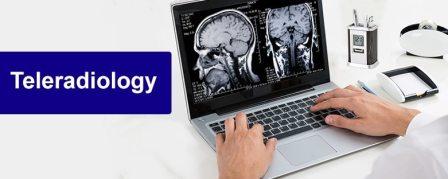
Introduction
Brazil, a nation renowned for its vibrant culture and natural beauty, is undergoing a revolutionary transformation in its healthcare sector, with teleradiology services taking the lead. Teleradiology is playing a pivotal role in reshaping the healthcare landscape, making diagnostic services more accessible and efficient for Brazilians. In this blog, we will explore the role of teleradiology in the Brazilian healthcare revolution and how it is improving patient care, bridging gaps, and contributing to a healthier nation.
- Teleradiology Unveiled: A Healthcare Game-Changer
Teleradiology involves the remote transmission of radiological images, such as X-rays, MRIs, and CT scans, for interpretation and diagnosis. This technology is at the forefront of modern healthcare, emphasizing precision, accessibility, and efficiency.
- Bridging Geographic Barriers
Brazil’s vast and diverse landscape, from bustling urban centers to remote rural areas, has historically created disparities in healthcare access. Teleradiology services are breaking down these geographical barriers by ensuring that patients across the country, regardless of their location, can access high-quality diagnostic services.
- Speedy Diagnoses for Timely Treatment
Traditionally, patients in remote areas may have faced long waiting times for their radiology reports, leading to anxiety and treatment delays. Teleradiology is transforming this process by facilitating rapid image transmission and interpretation, ensuring that patients receive timely diagnoses and can initiate treatment without unnecessary delays.
- Access to Specialist Expertise
In smaller healthcare facilities, access to specialized radiologists can be limited. Teleradiology in Brazil connects local healthcare providers with remote radiology experts, ensuring that patients receive the best care and have access to expert opinions, regardless of their location.
- Improved Patient Outcomes
Teleradiology services in Brazil contribute directly to improved patient outcomes by enabling timely and accurate diagnoses. Detecting conditions earlier leads to more effective treatments, better chances of recovery, and reduced patient suffering, especially in emergency and critical care situations.
- Fostering Collaboration and Knowledge Sharing
Teleradiology is not just about providing patient care; it also fosters a culture of education and collaboration among healthcare professionals. In Brazil, it promotes the exchange of knowledge and expertise, allowing local providers to learn from their remote counterparts and continuously improve medical services.
- Ensuring Data Security and Privacy
The success of teleradiology in Brazil relies on stringent security measures to protect patient data and maintain the confidentiality of medical records. Maintaining the privacy and security of patient information is of utmost importance.
- Overcoming Challenges for a Healthier Future
While teleradiology offers immense potential for healthcare in Brazil, there are challenges to address, including issues related to internet connectivity, equipment availability, and comprehensive training for healthcare professionals in the use of teleradiology technology. Overcoming these challenges is crucial for the continued growth and success of teleradiology services in the country.
Conclusion
Teleradiology services are at the forefront of the Brazilian healthcare revolution, making diagnostics more accessible and efficient. As the nation continues to embrace this technology, we can look forward to a future with improved healthcare, better patient outcomes, and a healthier population. Brazil is on the path to a brighter and healthier future, thanks to the transformative power of teleradiology services.
Service Areas:- Italy – Rome (capital), Milan (Milano), Naples (Napoli), Turin (Torino), Palermo, Genoa (Genova), Bologna, Florence (Firenze), Venice (Venezia), Verona, Bari, Trieste, Padua (Padova), Catania, Messina.
